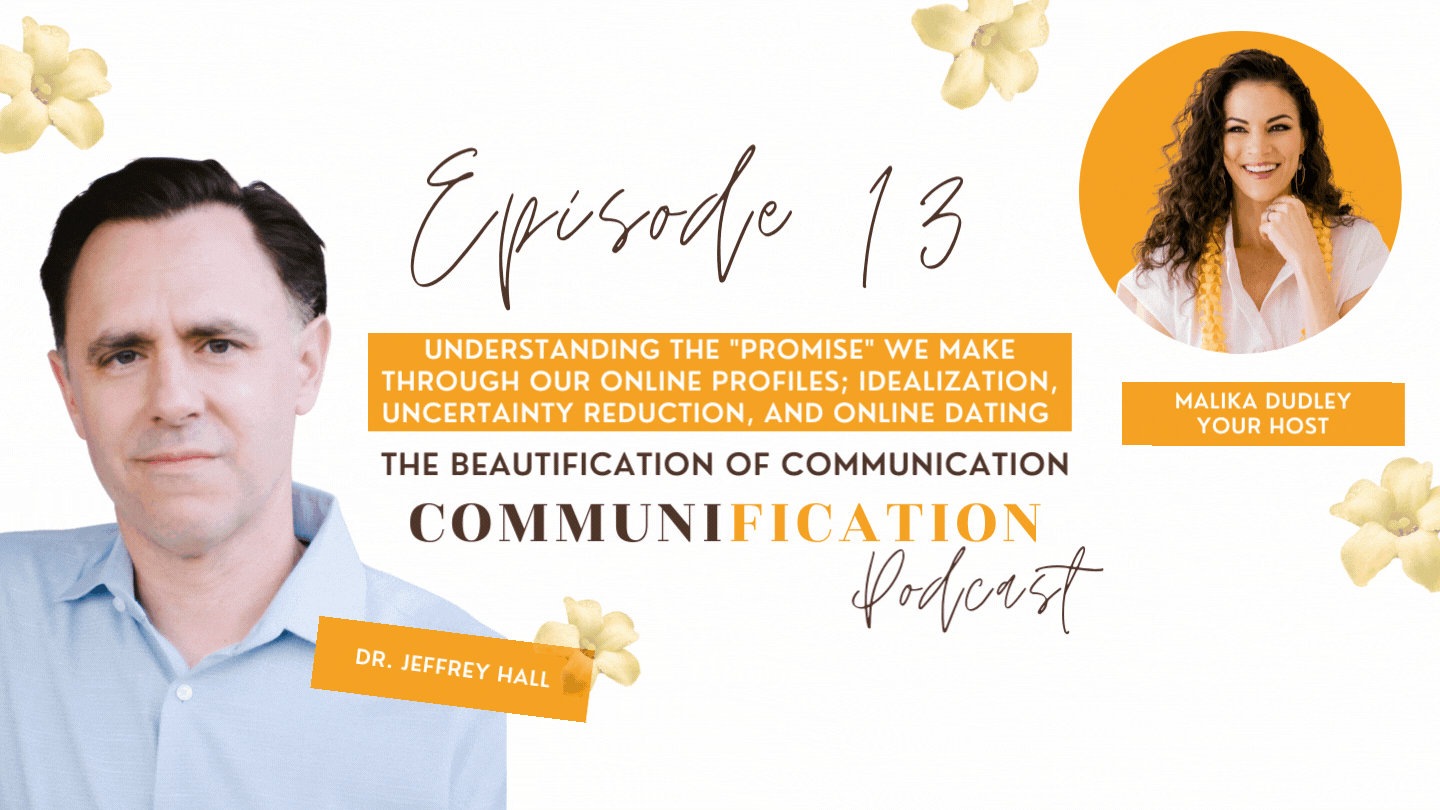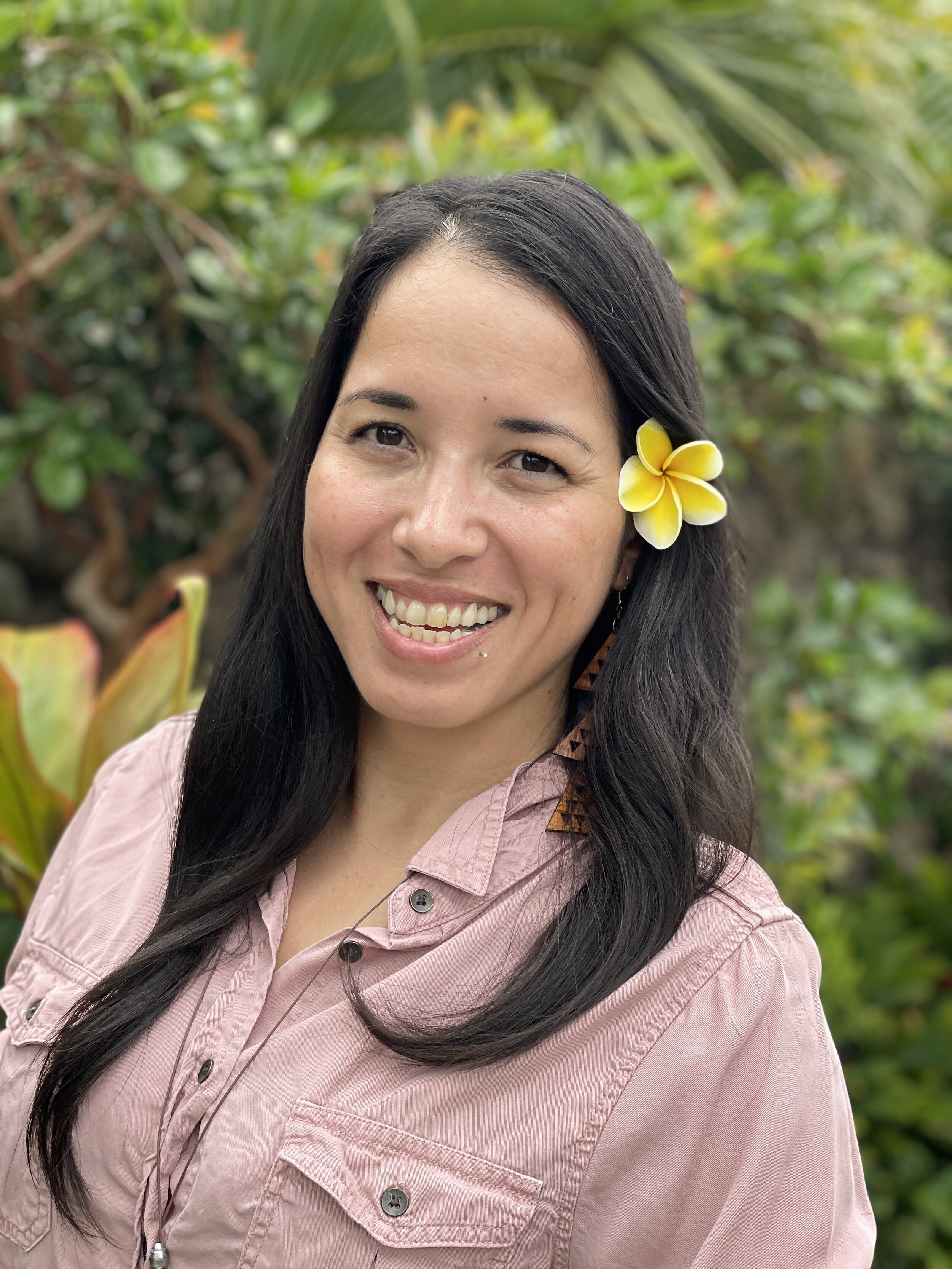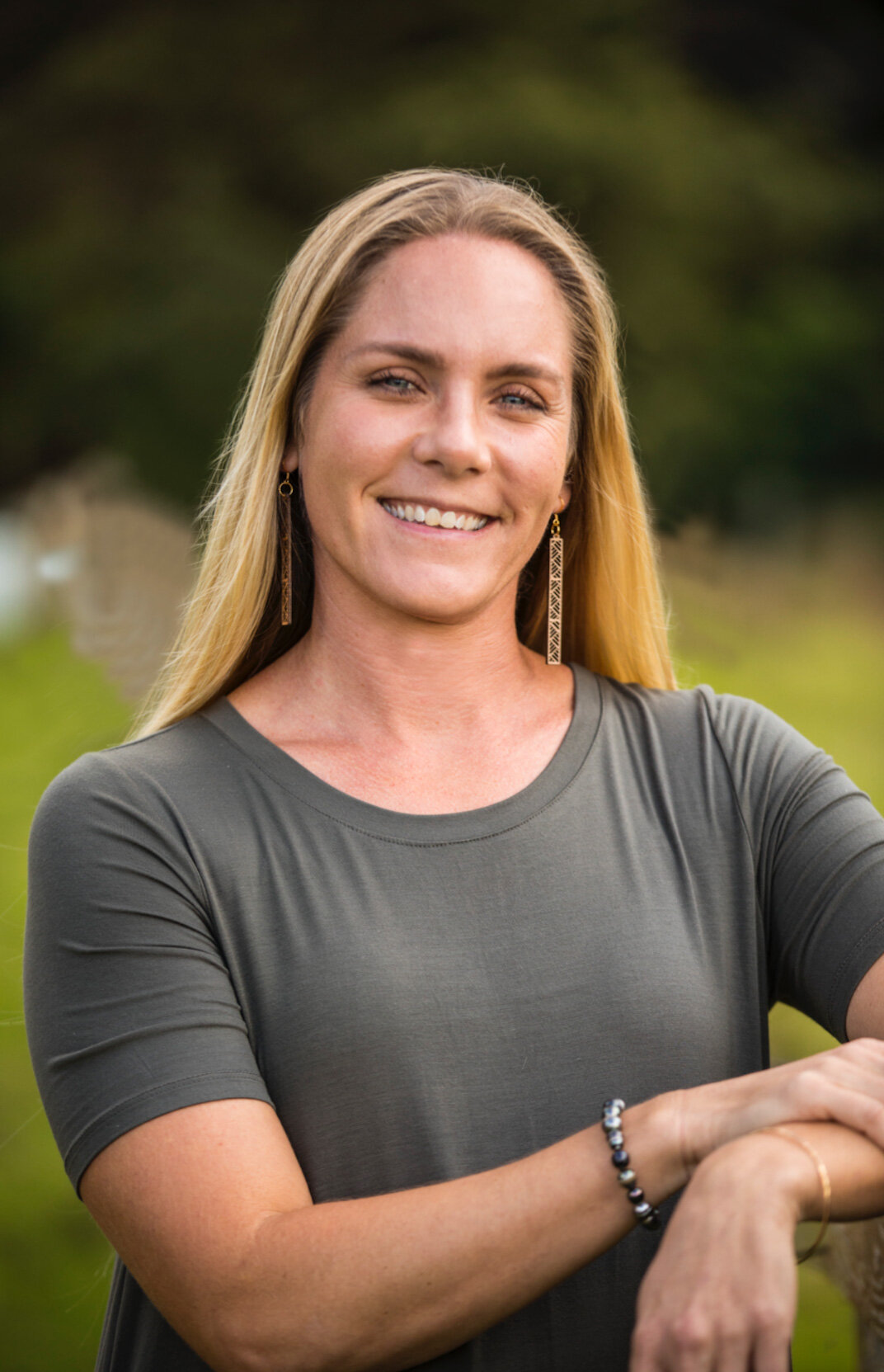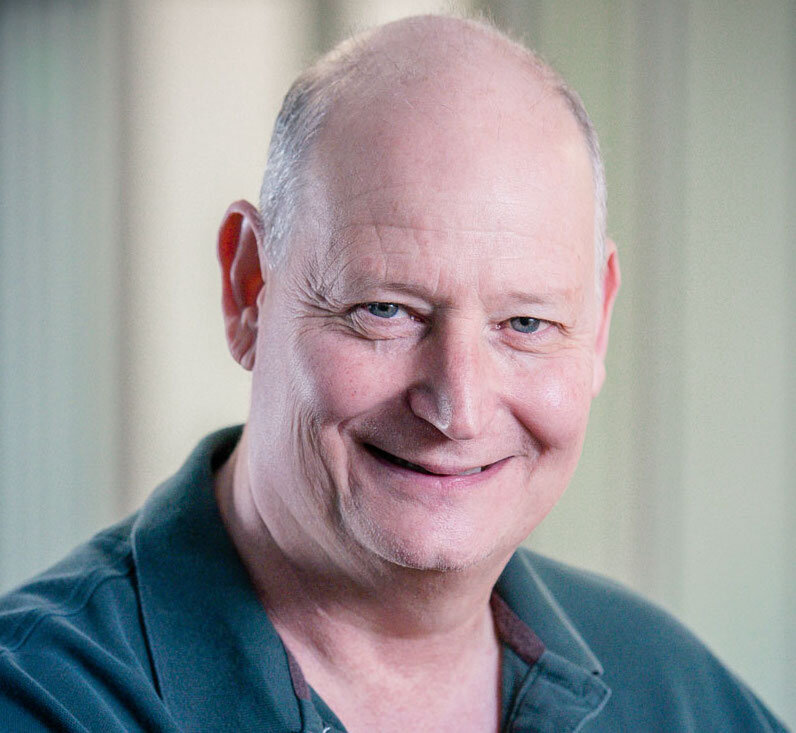Ep. 13: Understanding the “promise” we make through our online profiles; idealization, uncertainty reduction, and online dating - Dr. Jeffrey A. Hall
Below you will find the show notes for “Episode 13” of the Communification Podcast.
Mahalo for listening! Welcome to the ‘ohana!
Mahalo to the Show Aloha Challenge for donating to the Maui Food Bank as a part of this episode’s pre-roll giveback program!
Main takeaways
Self-presentation is the tool by which we manage other people’s impressions of ourselves. Dr. Hall explains.
As soon as we think we might want to get to know someone, our desire to reduce uncertainty goes really high.
Online we engage in what Dr. Hall calls strategic self-presentation. What is that?
Online “misrepresentations” are sometimes what some researchers call a “promise.”
Move to in person conversations as quickly as possible to reduce the potential for idealization
Time codes
GUEST: Dr. Jeffrey A. Hall
[04:55] WHY DR. HALL IS PASSIONATE ABOUT THIS FIELD OF STUDY
[06:00] DEFINING SELF-PRESENTATION AND IMPRESSION MANAGEMENT
[08:30] DEFINING UNCERTAINTY REDUCTION THEORY
[10:00] UNCERTAINTY REDUCTION AND ONLINE DATING: PROFILE DESCRIPTIONS
[11:30] MISREPRESENTATIONS ON DATING PROFILES - MIGHT JUST BE A “PROMISE”
[13:30] IDEALIZING YOUR POTENTIAL LOVE INTEREST CAN BE A PROBLEM
[15:30] WHEN THERE IS NO RESPONSE… AND AN ALARMING STATISTIC ABOUT RESPONSE RATES FOR MEN
[19:00] BENEFITS OF ONLINE DATING
[21:30] HOW THE PANDEMIC IMPACTED ONLINE DATING AND CONVERSATIONS
[23:20] LISTENER SOUNDBITE FROM MAHINA:
ARE THERE A CULTURAL OR LOCATION SPECIFIC DIFFERENCES IN WAYS PEOPLE PRESENT THEMSELVES ONLINE FOR DATING?
[26:20] RESEARCH-BASED COMMUNICATION STRATEGIES TO COMMUNICATE BETTER WHEN IT COMES TO ONLINE DATING
[28:30] RESEARCH-BASED COMMUNICATION STRATEGIES TO AVOID THE PROBLEMATIC SIDE OF ONLINE DATING
Dr. Jeffrey A. Hall bio
Jeffrey A. Hall is a Professor of Communication Studies at the University of Kansas. He is the former Chair of the Human Communication and Technology Division of the National Communication Association and the current Chair of the Interpersonal Communication Division of the International Communication Association. He was awarded the Early Career Award from the Interpersonal Communication Division of the National Communication Association, and is the founding editor of Human Communication & Technology. His 2020 book, Relating Through Technology, is the recipient of several awards. He has been interviewed by National Public Radio, New York Times, Wall Street Journal, USA Today, Time Magazine, Washington Post, Financial Times, CNN… and the Communification Podcast.
EPISODE 13: Understanding the “promise” we make through our online profiles; idealization, uncertainty reduction, and online dating
Malika:
Aloha Dr. Hall. Thank you for joining me on the Communification podcast.
Dr. Jeff Hall:
It's so much fun to be here.
WHY DR. HALL IS PASSIONATE ABOUT THIS FIELD OF STUDY
Malika:
Well, I really enjoyed reading some of the literature that you've put out. This topic is so interesting to me. So to start, how about you tell us what drew you to the study of human communication? Why are you interested in this field? Where does that passion come from?
Dr. Jeff Hall:
Yeah, definitely. I remember when I was an undergraduate, I was undecided for almost two years and in that time I was so interested in people. Like I thought people were the most fascinating thing in the world. I was trying to understand what motivated them. I loved having these long kind of undergraduate conversations, figuring out what mattered to me.
And I find myself kind of amazed at 20 years later here, I am answering very similar questions to the one that I asked myself back 20 years ago.
Malika: So amazing.
So what are the topics that you study?
Dr. Jeff Hall:
So I would say I've really kind of made two kind of areas of interest really my home. One of them is I studied a lot early on about flirting, about attraction, about online presentations of self, like through online dating and all of those things that really sort of are about the process of initiating relationships.
Right now I'm really focused on kind of technology and all of the ways that influences our relationships. So around friendship, around family, about the ways, and basically everything from phone calls and video chats to texting and all of that is part of the way that we maintain and develop our relationships.
Malika:
Fascinating. I mean, you're preaching to the choir here because I find all of this, so, so fascinating. But on that topic then to kick it off, why don't we start with some simple definitions. We kind of skirted around this in episode one. So if we could get a clearer definition of what impression management is and what self presentation is.
DEFINING SELF-PRESENTATION AND IMPRESSION MANAGEMENT
Dr. Jeff Hall:
Absolutely. So what's interesting here is when we think about these two kind of parts, one has to do with this sort of part in which that we're acknowledging or thinking about how other people see us.
So anytime that you're very concerned with this issue of how am I modifying the way that I self present in order to kind of achieve some sort of goal, then you're engaging in impression management. So self-presentation is kind of the tool by which we manage other people's impressions of ourselves.
What's interesting is we can also think of kind of self presentation and impression management on sort of like a continuum. So right now, meeting you for the first time, I'm actually doing a lot of self kind of presenting.
Like I'm working very hard to monitor myself, my impression management, but if I'm home with my family who have seen me for their entire lives or for 20 years with my wife, I don't do a lot of impression management because who I am is very relaxed. I don't really think about how they see me so much.
So we can think about the idea that relationships and impression management really sort of play a huge role on how much work we have to do into our self presentation.
Malika:
Well, and side note to all the listeners, full disclosure here, I got the time wrong with Jeff. And so I'm on an hour earlier than I thought. So I didn't do my makeup. And I said that to you twice. It was the self presentation. Oh, I'm so sorry. I would have put a little bit of mascara on, I would have not worn a sweater so that you would think that I'm more professional because I want to manage that impression because you are a researcher and an academic.
Dr. Jeff Hall:
But, but in part actually, when it also is able to do though, is acknowledging that we're working hard to make an impression also tells another person a message. Right? So when we both in the process of saying that I care about the way that I come across, but also being self-conscious about it often means that we're going to have something that's more informal, right?
You and I are going to have a conversation, we're going to treat each other in a more friendly way rather than a professional way. So I'm on board. I'm just wearing a Henley. I'm not doing anything special.
Malika:
Same. Same. Thank you. I'm glad we're on the same wavelength here. Great. Okay. Let's go back to the topic at hand.
Let's add on another layer to that impression management self presentation... What is uncertainty reduction theory and how does that factor in to a discussion about online dating specifically?
DEFINING UNCERTAINTY REDUCTION THEORY
Dr. Jeff Hall:
Yeah. So uncertainty reduction theory is maybe one of the oldest homegrown theories and communication. So communication has a lot of different theories of interpersonal communication, but not very many are developed by people in communication about communication concepts.
Uncertainty reduction theory starts with the presumption that when we meet new people, that we have a lot of uncertainty about our relationship to them and that one of the assumptions of the theory is that we're trying to reduce uncertainty about that person. However, what's really important about that is whether or not we are actually interested in forming a relationship with that person over time.
So for example, one of the criticisms of uncertainty reduction theory is obviously we meet, you know, dozens, scores, hundreds of strangers in a week. We don't really care that much about reducing uncertainty about them aside from kind of assessing them in the moment. Like, is this somebody who I know, is this someone who is safe, or is this somebody who I do have to pay attention to?
But aside from that, baseline level of uncertainty reduction, we don't really go into much depth. But as soon as we think we might want to get to know them, somebody that's interesting to us, especially someone who we think we will be engaged in conversation with, or relationship development with, our desire to reduce uncertainty goes really high.
UNCERTAINTY REDUCTION AND ONLINE DATING: PROFILE DESCRIPTIONS
As a consequence, we engage in a lot of these strategies to basically reduce uncertainty about another person.
So when we think about online dating... online dating is very curious because for the first time in courtship development, people have to state all of the things that would come out naturally in the course of conversation, they got to list things in their profile.
Some profiles are really detailed in terms of not only your preference of what kind of partner you're seeking, but your personality and your background and your education and your interests and all these things. And all of that can be thought of as a process of not only impression management, right. You're presenting yourself in a certain sort of way, but also as uncertainty reduction, in the sense that you're giving people information to reduce uncertainty about you.
So those two things go together, but I would point out it's not the case that what you present is necessarily what's true. So as a consequence, you're kind of engaging in is what we would call strategic self-presentation.
Malika:
Strategic self presentation. And I read an article that you wrote where you talk about strategic misrepresentation. That leads us right into my next question, which is what are some of the problems that people encounter when it comes to online dating, especially communication-wise.
MISREPRESENTATIONS ON DATING PROFILES - MIGHT JUST BE A “PROMISE”
Dr. Jeff Hall:
Yeah, there are a lot of problems that come along with online dating. But one thing that I have to keep in mind about online dating is that it's also transformed dating in a way we never would have guessed, 20 years ago.
Recent surveys have suggested that as much as a third of Americans who got married in the last 10 years met online. It says that for individuals who are a sexual minority, that number goes up to 60%. So online dating may have problems, but it has become an instrumental process in developing long-term and meaningful relationships.
So although I want to present these things, in light of what the research evidence say, I also want to keep in mind, this is a really important process of people's development towards romantic partnerships in our country right now. So to answer your question more specifically, though, the couple of things that I might add, one thing is, is that people when they engage in strategic self-presentation, there's a tendency to want to misrepresent.
However, the data, both from the study that you mentioned that I did and other places. That people are actually very careful about developing an online profile that I've heard one researcher call a "promise." I'm promising you, that I am this kind of person.
So what you do is, is that you take the characteristics of yourself that you think are attractive and interesting and valuable. You might modify them slightly to seem a little more exciting, a little more energetic, a little more attractive, a little more of a person someone else might want to meet, but you only do so within kind of like an understanding of I'm promising you I am going to be who the person that I really am.
As a consequence online dating has a kind of, almost like a counterforce that although there's misrepresentation, people, if they want to meet face to face, know that it's a deal breaker. If someone has misrepresented themselves entirely and people are very concerned with that.
So one thing to keep in mind about this is, although it is the case that people misrepresent online and that's true, the data generally suggests that they do so within a certain parameters that we wouldn't be all that surprised to see in a face-to-face relationship.
So let's say that you and I were meeting in a first time and a date that were set up by a friend. Right. We may have engaged in some sort of uncertainty reduction by asking our mutual friend, what does Malika really like? What can I expect here? And you might ask about me as well, and then we might modify our self presentation on that date in order to be suitable to the things that I've heard that you like, and maybe to the things that you think that I might like.
IDEALIZING YOUR POTENTIAL LOVE INTEREST CAN BE A PROBLEM
Malika:
Sure. Yeah. I can see that… something that's coming to mind... Well, okay... So it wasn't on online dating sites though, but what ended up happening was I was interested in this person, pursued them. We talked online and when I met them, I had the vision of that idealized side of that person. So I know there's research on this. Can you talk a little bit about that problem?
Dr. Jeff Hall:
So what's fascinating about what you're saying is, although people are more concerned with someone misrepresenting themselves, what seems to happen, which is a bigger problem is actually the idealization process, which is what you're mentioning. So there's been some wonderful work done by Art Ramirez and Erin Sumner, who have looked at the idea of that latency period between when you first kind of connect with a person on whatever profile you're looking at. And then when you actually see them face to face.
And what's interesting about that is that there's some research that says the longer that you engage in this kind of latent process of just online communication, the more the idealization takes over. And when idealization takes over, what happens is we begin in part all these wonderful qualities on this person that we've met, because we really are relying on their very strategic self-presentation as our evidence of who they really are.
So as a consequence, there's something that happens that I think is really, it's kind of a beautiful thing about human nature that we want to believe great things about another person, but in terms of online dating, it usually leads to disappointment.
So there was a recent study by Liesel Sharabi, who is actually now at ASU, and she found that when people who are meeting online and are communicating only online, what they want to do is they want to present things like their relational goals. They want to be upfront about what they're looking for. They want to be not just honest about what they are looking for in the relationship, but also more clear about the person that they are and where they're going in their life. This makes a big difference in making sure that latent period between matching and meeting actually turns out better.
So if people are playing coy or being kind of cagey or not saying too much, weirdly that actually runs into the problem of idealization more than if people are more upfront and honest.
WHEN THERE IS NO RESPONSE… AND AN ALARMING STATISTIC ABOUT RESPONSE RATES FOR MEN
Malika:
Wow. Oh, you know, there was also something that listeners mentioned. I asked them to weigh in on this, and what I kept hearing over and over again from both men and women.
So Michael said this, I think Lori said this... they keep running into the problem of also getting no response. So they're trying to communicate, but in order to communicate, you need things to go both ways. But I guess, I suppose a non-response is also a response... it's communicating something.
Dr. Jeff Hall:
Yeah, it is true. I mean, there are rates that you might astonish some of your listeners that I have heard that in some locations that the response rates are for, particularly for men trying to reach out to women they're interested in... a 200 to one attempt to response ratio. Yeah. So it's really hurtful for so many men to go through the process over and over and over and over again to face that kind of rejection.
And of course in this case, I'm presuming a heterosexual relationship. But I think that from women's perspective, oftentimes they are barraged by so many different messages that show interests that they really don't have the time, they don't want to even necessarily engage in kind of polite "no thank yous" because the consequences of that might lead that person to continue on to pursue them because even a “no, thank you” is a response.
So what's very fascinating about this and I'm also kind of sad about it on some level is that I think that there's not a whole lot of things that people can do in order to kind of combat that problem of gender difference in that ratio.
As long as there are a lot more men who are willing to pursue a lot of different partners and our cultural script is that men should do the pursuing. I think that the most promising change on that has been what Bumble has done. But prior to that, there really weren't a whole lot of scripts or websites that or dating sites specifically that promoted the idea that we should flip the script and have women do the pursuing. Otherwise we're going to have these really outlandish ratios of rejection.
Malika:
Wow. Well, it's nice to be aware of it. I think by being aware of it by some, a man who is listening to this podcast, hearing that that is the ratio that you can feel okay about the fact that you're not unusual. This is normal.
ONLINE DATING IS THOUGHT OF AS “WORK”
Dr. Jeff Hall:
And it's unfortunate, but that's kind of what you're getting into.
And I think that a lot of times we have to be cognizant of the idea that people who talk about doing online dating, think of it as work. They talk about it being a lot of sort of effort. And I do think that one thing that I hope that all listeners, whatever, who you're interested in or, whoever you are that a general kind of a sense of trying to be a polite in your ways of both saying no and not being interested can go a long way.
And building an environment where we don't feel rejected and hurt.
Malika:
Saying no in a polite way. Okay. Now I'm going to go off on a tangent though, because I feel like that's attractive. I mean, this just happened on the bachelorette. The guy had plotted out how he was going to be, get more airtime and be in the end. And then she found the notes and then she said, you need to leave. And she said, It's such a polite and wonderful way. And he was like, so what can I do to stay?
Dr. Jeff Hall:
You know, what's really funny is it reminds me of a study I saw years ago when I was working on my flirting styles book. And it found that people who were most likely to handle gracefully breaking up with someone who was also someone who tended to be pretty good at relationships anyway. So what's kind of funny about that is that there's an irony there that someone who's actually really excellent at being a responsive and caring partner is also someone who you're actually going to have a good breakup with. Which it makes me go well, why would you ever break up? Like, how does that ever come to pass?
BENEFITS OF ONLINE DATING
Malika:
Oh my gosh. So funny. Okay. So now let's switch onto the benefits. What are some of the benefits of online dating when it comes to communication?
Dr. Jeff Hall:
Absolutely. Then I would say the number one, one that I mentioned a little bit earlier is the way that we've been able to really create an environment for people who are marginalized or cannot find partners that are suitable in their local communities.
There's the communications, the technology part, which has made it so that, queer youth who are in Western Kansas, and very far away from a lot of different people, have opportunities to meet people of their similar sexuality, but also learn more about their own sexuality through online dating.
And I think that of all of the accomplishments of online dating, maybe that's the one that I find the most encouraging, because it really points to a way that there was a pretty dire need prior to online dating of people who are marginalized, not having an opportunity to find people who they could connect with.
And I feel like online dating has done an amazing service to our community, at large, to be able to create those connections. I would say on another sort of level, I think that what it's also done in a very positive way is that it's given kind of a chance for people to be able to move away from environments, which might be more dangerous or hostile, particularly to women.
And I'm thinking of kind of the hook-up culture, I'm thinking of bar culture. I'm thinking of the script that involves women consuming alcohol or otherwise in order to be flirted with, or even hit on or however you want to phrase it. I think that all of those practices were ones, which I don't think there's any question they expose women to unnecessary risk.
I think that online dating is a much more safe environment for those things. Now that's not to say that things like cat-fishing or unwanted sexual pursuit or other things don't happen. It's just that online dating creates a forum in which that there's a lot of barriers of safety that I think that women in the nineties or eighties weren't able to enjoy.
So I think there's a lot of, kind of positive parts about that, but, I would say the one that I think about as a researcher that I think is also kind of interesting is that it helps you figure out people who are interesting or interested in dating. I remember when I was in college and this was before online dating became a major thing.
It was actually hard to know who's available. Like I would talk to women who I was interested in at that time in my life, and then find out six conversations in, that they were dating somebody. I'm like, oh man, Yeah, it was for some times you'd still be able to be friends with somebody, but it's still a disappointment.
So I think that there's an advantage to being able to know that the place that you're at has a like-minded community of people who are at least open to the possibility of dating. And that's an advantage in itself.
HOW THE PANDEMIC IMPACTED ONLINE DATING AND CONVERSATIONS
Malika:
And maybe having deeper conversations?
Dr. Jeff Hall:
You know, what's fascinating is that a friend of mine who does research on this and her name is Sara Konrath.
She has worked on empathy and also on online dating. And one of the things that she found was during the pandemic, people were more likely to have long, deep conversations in online dating because that the risk of face-to-face meeting was so high. Right? I mean, pre-vaccine meeting up with somebody that you were interested in through an online dating site was a huge risk.
And so as a consequence, people were very, very careful, but before making that first move as a consequence, what she said is that the research that she did with OkCupid found that people were taking a lot more time having more in-depth conversations, using video chat and other mediums to communicate.
And I thought that was really innovative and inspiring.
LISTENER SOUNDBITE FROM MAHINA:
ARE THERE A CULTURAL OR LOCATION SPECIFIC DIFFERENCES IN WAYS PEOPLE PRESENT THEMSELVES ONLINE FOR DATING?
Malika:
That is super inspiring. Wow. Oh, we could go on and on, but I'm going to switch to another topic just because we want to keep things going here. I have a listener soundbite. This one comes from Mahina she's on the island of O'ahu in Hawaii, which is where a lot of my audience resides. When I brought up the topic on Facebook or should I call it Meta now? No, not yet. We're not going to cave to that. So anyway, I brought it up and my Hawaii people had a lot to say about the pool being really small, about knowing too many people that are on there. One woman shared that she felt like men in Hawaii, culturally, just didn't write adequate profiles or they tended to be less educated. So going on a little bit of a tangent here, but this listener question kind of taps into that. So let's listen.
Mahina:
Hi Malika and Dr. Hall. Thank you for having me on the podcast. I am wondering, do you think there are cultural or location specific differences in ways people present themselves online when it comes to dating?
Dr. Jeff Hall:
That's a great question. So I was thinking about this a little bit, and there's a couple of factors that I think are fascinating. One is your issues, particularly related to geographic, lack of access to others. There's a lot of really interesting research that says that really transforms the way people go about dating.
Kind of a corollary of that would be places where there's kind of a more small town or there's less geographic access to others compared to really big cities and otherwise.
The research on that actually has some things that are kind of promising for your listener, which is that people tend to not be so focused on things like physical attractiveness or looking for somebody who is like really wealthy or really more kind of desirable because there are so fewer people to pick from, and as your reader, as your comments pointed out, there's a risk that you actually might meet this person in face to face, and you don't want to have been rude or mean or otherwise to them. So one big factor is whether or not there's a lot of other people around does change the way in which that we prioritize different characteristics.
Another factor that I think might be pertinent here that I find also really interesting is there's a lot to have to do with actually gender ratios. Presuming that there is a heterosexual relationship that is being sought, when the ratio of men to women who are available changes, you see the kind of behaviors that people engage in very differently.
So in communities, in which that there are a lot of eligible women and not a lot of eligible men. Your reader's comment could be presumed to suggest that there just aren't enough available men. It changes how willing women are to be more direct, kind of take the more active role, the more aggressive role in courtship and that completely switches and environments with there are very few women, but a lot of men and those cases, men will be galant and will be charming and will take as much time as women want in order to develop the relationship, and be the pursuer and engage in what we might see as traditionally masculine behaviors to be competitive, to show that they're more attractive to the few women who are available. What's curious about this as this plays out in a very culturally specific way in communities that don't have a lot of eligible partners of the same race or of the same sexuality.
We see very different sort of mating behaviors engaged in online, and then also offline because of those different sort of forces playing out in terms of availability, in terms of selection, in terms of whether or not people actually have enough of a pool of partners to even pick from.
RESEARCH-BASED COMMUNICATION STRATEGIES TO COMMUNICATE BETTER WHEN IT COMES TO ONLINE DATING
Malika:
So interesting. I'm just taking this all in. It's a lot of information and I don't even date online. I'm married, but so interesting... Oh my goodness. I can't wait for the episode where we break all of this down with my girlfriend. Well, let's wrap up online dating. What are some research-based communication tools that listeners can use to communicate better when it comes to online dating?
Dr. Jeff Hall:
Absolutely. Let me give you a handful of ones that I think are really helpful. One is don't spend too much time after you meet somebody online that you think is promising waiting to meet them offline, especially at these, at this stage, if you're vaccinated and your partner is vaccinated, there's good reason to say moving to face-to-face connection, or at least a video chat connection is going to get you farther along in being able to have a true read of whether or not you're going to click with that person. So don't take too much time online.
Take your time when evaluating profiles, it is not in your interest to browse them like a menu at like a whatever you can think of as a restaurant that has like 15,000 pages of a menu, you don't want it. Right. I'm thinking like the cheesecake factory. That's the one with the crazy along menu. Don't do that. And the reason is that when we engage in a mindset that says that I'm going to pick who I think is the best possible partner from this list, we've totally ignored the more important factors in really connecting with someone, similarity of values, an interesting personality, something that we really think might be potential for longterm success. Instead, we focus on their attractiveness compared to everyone else in all the different profiles. So take your time, slow down. Don't just treat people like a list of menu items.
The third that I would suggest is although there are many courtship related books and otherwise that would recommend people to be coy, for people to withhold information and kind of titillate or tease it out. There's very little evidence that these are successful strategies in the longterm.
They may make your partner more persuant. Maybe maybe, but oftentimes it just makes people feel like they're not being listened to or heard. It makes people feel as if you're not answering the question or you're not interested in engaging in conversation because you just don't want to get to know them. So people don't get the clue that you want them to pursue them by being withholding, they get the clue that you want them to pursue them by being open by being open to communication, responsive to questions.
Don't take too much time online. Don't run through a million different options and pick your favorites. Take the time with individual people, be honest and open as possible, particularly in the part when you're communicating with your partner before you meet them face to face. So as to not create an idealized environment, where you may not be able to meet their expectations.
RESEARCH-BASED COMMUNICATION STRATEGIES TO AVOID THE PROBLEMATIC SIDE OF ONLINE DATING
Malika:
I love that. And what are some tips that you can give us for online daters to avoid the problematic side of dating?
Dr. Jeff Hall:
Yeah, I think that there's a couple kind of parts that you can, one thing unfortunately, is to know kind of what you're up against and to know that when you engage in this, especially if it's your first time or just beginning to the process of it, it is work. I wish that I could say that is going to be an enjoyable process or one that's going to quickly resolve itself. And I think it is helpful for people to walk into the environment, knowing what they're getting into. I think that that's more so for heterosexual men seeking women are more likely to feel a sense of rejection. I think they need to be aware of it.
To avoid that unfortunately, I'm not certain there's a clear way to avoid it. But to also accept that that's just how probably it's going to play out.
The second one that I would say in terms of avoiding things that are potentially problematic is to really consider the idea that being able to build an environment in which that we're polite and kind to one another has positive effects beyond to that other person.
When we respond in ways which are open and kind to one another, we actually tend to have a greater sense of self-esteem and self-worth and greater wellbeing. So there is value just for you to be kind to the people that you're interacting with.
So in some ways I'm saying, yeah, do it for the other person cause it stinks to be let down, but also do it for yourself because kindness tends to actually have a good impact on you.
Malika:
I love that. I guess for the strategic misrepresentations or maybe people that go even farther on that side, fact-checking and asking third parties or things like that might be useful?
Dr. Jeff Hall:
Yeah. The Google search, do it, verify those data.
Malika:
Such a wealth of information. Just wonderful.
Well, I'll be putting links to Dr. Hall's research in the show notes. So you can check that out. Thank you so much for dropping so much knowledge on us.
References
Dr. Jeffrey Hall’s Google Scholar page
Art Ramirez Google Scholar page
Erin Sumner Google Scholar page
Liesel Sharabi Google Scholar page
Sara Konrath Google Scholar page
The YouTube version of Episode 13: Understanding the “promise” we make through our online profiles; idealization, uncertainty reduction, and online dating
Current and future episodes of the Communification Podcast
Click below to see the show notes & listen in.
The episodes that have yet to drop are COMING SOON!


















